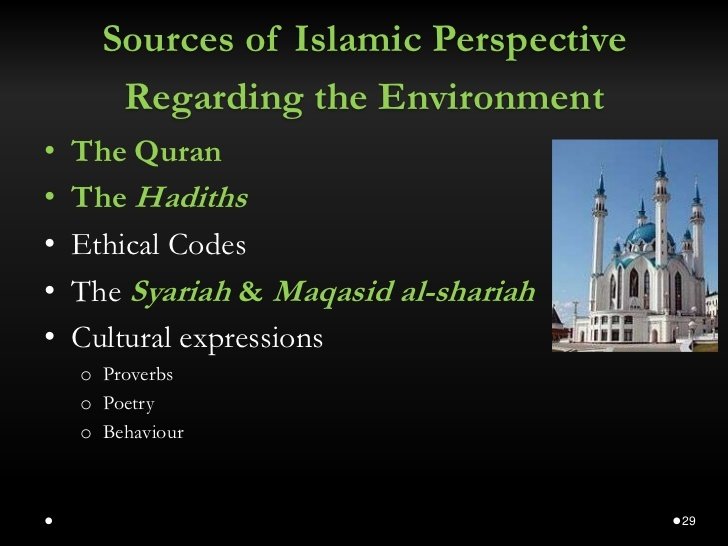NAME:
Serhat Özdemir
DEPARTMENT:
Information System Engineering
LECTURER:
Prof.Dr.Hüseyin Sevay
Environmental Ethics
www.google.com

Tragedy of the Commons
•
Individual farmers are motivated by self-interest to enlarge their common-pasture herd by one or two cows, given that each does negligible damage. Yet, when all the farmers behave that way overgrazing harms everyone.
Tragedy of the Commons
Competitive, unmalicious, but unthinking exploitation arises with all natural resources held in common
– Air, land, forest
– Lakes, oceans, endangered species
– Entire biosphere
Today, a wide consensus that we need concerted responses to ecological concerns that combine economic realism with ecological awareness.
Tragedy of the Commons
Engineers play a key role in that consensus
Text
– Develop technical details on environmental impact, encourage corporations to be concerned about the environment
– Help set policy, help follow laws
– Help make it economically feasible
Engineers: Sustainable Development
- Historically, engineers were not as responsible concerning the environment as they should have been. They simply reflected attitudes predominant in society.
Individual engineers differ considerably in their views, including their broader holistic views about the environment (e.g., politics affect)
Engineers: Sustainable Development
In present climate, it is good business for a corporation to be perceived by the public as environmentally responsible
Corporations: Environmental Leadership
Example: Compaq Computer Corp. (now merged with Hewlett-Packard), Life-cycle strategy, “Design for Environment”
– Efficient use of resources
– Energy-efficient products
– Easy disassembly for recycling
– Waste minimization
Corporations: Environmental Leadership
Government: Technology Assessment
Government laws and regulations are the lightning rod in environmental controversies.
Need laws to protect degradation of the commons
• But how much law, and what sort, and to what ends, are matters of continual disagreement.
Government: Technology Assessment
Market Mechanisms: Internalizing Costs
Typically, only include direct costs of labor, raw materials and use of facilities
• True cost would include
– Effects of pollution
– Depletion of energy and raw materials
– Disposal
•
Market Mechanisms: Internalizing Costs
Taxpayers are revolting against higher levies so the method of having the user of a particular product or service pay for all its costs is gaining favor.
•
Communities: Preventing Natural Disasters
Communities at local and state levels have special responsibility to conserve natural resources and beauty for future generations. They also have responsibility to prevent hurricanes, floods, fires, and earthquakes from becoming disasters .
•
Communities: Preventing Natural Disasters
– Restrictions on human habitat (e.g., homes should not be built in floodplains, homes in prairie country should have tornado shelters, hillsides should be stabilized to avoid landslides, structures should be able to withstand earthquakes, roof coverings should be nonflamable, etc.
Communities: Preventing Natural Disasters
– Strengthening the lifelines for essential utilities such as water and electricity
– Put in defensive structures such as dams, dikes, breakwaters, avalanche barriers, etc.
Communities: Preventing Natural Disasters
Assure safe exits in the form of roads and passages designed as escape routes, emergency shelters, adequate clinical facilities, and agreements with neighboring communities for sharing resources in emergencies.
Social Activists
• Rachel Carson
– Argued successfully against DDT
– Later found that should be used for fighting malaria by killing mosquitoes (when stopped using DDT in Madagascar 100,000 deaths reported)
Social Activists
• Prof. Sherwood Rowland
– Identified depletion of ozone layer via chlorofluorocarbons (CFCs)
– Verified via NASA
– Montreal Protocol, mandated CFC phase-out by 2000
Ethical Frameworks: HumanCentered Ethics
– Focuses exclusively on the benefits of the natural environment to humans and the threats to human beings presented by the destruction of nature.
Ethical Frameworks:HumanCentered Ethics
Assumes that among creatures on earth only human beings have inherent moral worth and hence deserve to be taken into account in making moral decisions concerning the environment.
Utilitarianism says maximize good consequences for human beings
– Concern many products made from natural resources
– Aesthetic interests as in the beauty of plants, waterfalls, mountain ranges
– Recreational interests as in hiking, backpacking
– Scientific interests in study of ecological preserves like rain forests
– Survival interests – conserve resources and preserve the natural environment
Sentient-Centered Ethics
--Recognizes all sentient animals as having inherent worth.
--Sentient animals: Those that feel pain and pleasure and have desires.
Sentient-Centered Ethics
--Some utilitarians extend their theory (that right action maximizes goodness for all affected) to sentient animals as well as humans.
Biocentric Ethics
Life-centered ethics regards all living organisms as having inherent worth.
Biocentric Ethics
--Schweitzer – “bioemphathy” – our capacity to experience a kinship with other life, to experience other life in its struggle to survive and grow.
--He often spoke of reverence for life as the fundamental excellence of character.
Ecocentric Ethics
--Locates inherent value in ecological systems
(rather than individual organisms).
Ecocentric Ethics
--A. Leopold: “A thing is right when it tends to preserve the integrity, stability, and beauty of the biotic community. It is wrong when it tends otherwise.”
Religious Perspectives
-- Genesis: “Be fruitful and multiply, and fill the earth and subdue it; and have dominion over the fish of the sea and over birds of the air, and over every living thing that moves upon the earth”
Religious Perspectives
– Genesis: Second chapter commands “stewardship over all the earth”, suggesting the role of a caretaker
• Old view is one of “dominion”
Religious Perspectives
– Islam: Koran contains passages that alternate between themes of exploitation of nature for human pleasure and themes of responsible stewardship over what ultimately remains the property of God, not humans.

THANK YOU FOR LİSTENING:))
Copy of Copy of slayt
By Serhat Özdemir
Copy of Copy of slayt
my presentation
- 623

